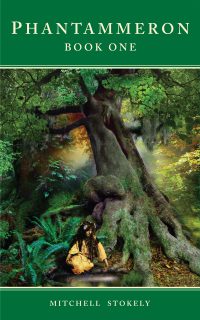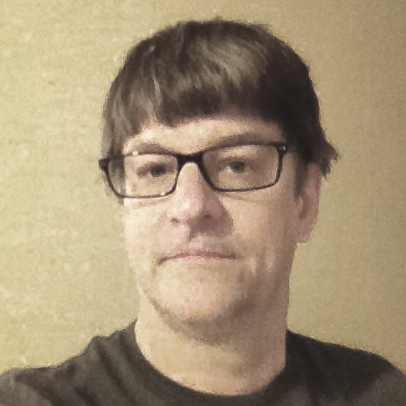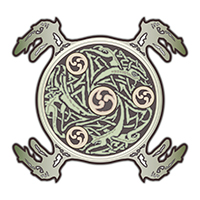Answer: Mythopoeia is myth-making. But that is only the short answer…
Mythopoeia is essentially writing about one’s personal mythology, or writing in a style of prose and story-telling involving an extensive, deep, rich personal mythology the author has constructed over many years. It goes beyond protagonists and story arcs. It goes beyond battlefields, crowns, thrones, wars for land, wealth, fame, romance, love, and power. It goes beyond the traditional tropes of dragon-riders, vampire love stories, fairies, and elves. It is not world-building or fantasy maps drawn on a page.
Mythopoeia is purely about the archetypes of the psyche that exist in the self and which the writer consciously chooses to explore.
Mytho-poetic writing is about constructing the larger themes of life and living life on the page, of grandiose tragedy, redemption, determinism vs freewill, of the divine nature of the individual versus the Gods, being and non-being, and of the greater themes of the unconscious mind that holds meaning in mythic symbols and imagery hidden in the lower brain. It is existential and profound, played out via characters in story, yet driven by a greater plan beyond a single protagonist or story arc.
How can one character in modern fiction portray all that? They cannot. Therefore, such fiction requires a different perspective and approach, a different prose style, deeper themes, broader tropes, and wilder and more imaginative creative writing tied to the individual and his/her dreams . As such, it is about transposing the world of people, events, struggle, and the nature of this world onto the mythic landscape of the human mind and heart, apart from those ideas. Though we are limited in our play of the larger, more modern world we live in, we are its driver in our own minds and imagination as writers and creators.
In our psychology, the conscious and unconscious mythical mind of the individual writer and artist must remove the shallow projections of our personal needs, desires, and dreams, and replace them with the more sublime and universal themes embedded in the mind, connecting with symbols, mythic images, and archetypes whose purpose and meaning plays into our survival and the very meaning of our lives as human beings in the universe. In that sense, mythopoeia doesn’t exist in most modern fiction, simply because modern fiction often derives from our personal desires and frustrations and our “emotional needs”, rather than the personal myth of the self and the spirit apart from the flesh.
And so mythopoeia, and really all great fantasy literature, is very much a religious experience, and demands more from us as writers if it is to succeed and stir others. It demands much more.
Mytho-poetic writing is about exploring the archetypes of the unconscious, as Carl Jung has written about. It involves exploring the vast architecture of the self; where Gods, worlds, and tragedy collide, huge landscapes and legions of characters engage in a conflict and struggle that wages fiercely in the author’s unconscious mind and psychology, separate from society and modern struggles for money, sex, love, power, and desire. It is writing on a “different level” from traditional modern dystopia.
In many ways it is like writing Bibles, Torah’s, or Quran’s…..not as religious expression but as expressions of one’s personal connection to the Creator in a respectful way that incorporates one’s chosen modern religion into it.
Christopher Tolkien’s Silmarillion is what I consider a “pure mythopoeia” as it is based on the author’s careful study of ancient Western philology, combined with his own psychological symbols. Unlike most modern fantasy today, Tolkien’s books appear to be free of modern human “needs” and desires, of modern politics, allegory, fantasy fiction tropes, extreme violence, gratuitous sex, greed, fame, and personal conflict. Its struggles exist ONLY in the author and in his spirit, yet remain outside his personal desires for love, money, fame, family, and other traps of modern fantasy. His mythology existed purely in his psychology, and so was designed around his own metaphysical beliefs about larger themes in literature and religious experience – immortality, Christianity, faith, free will, Greek tragedy, good vs evil – as well as careful studies of pagan Indo-European mythology. That is the key to truly understanding mythopoeia that I feel has been lost since 1977.
But I believe more writers can begin to embrace the grander themes of mythopoeia in fantasy through a careful study of the Simarillion and the ancient pagan manuscripts that inspired it. Through the exploration of the ancient pagan mythology of our ancestors’ ancient symbols and stories (based on the countries our families come from), we can begin to construct extremely rich and diverse story-telling beyond what’s being written today in the money-making, pop-culture sphere.
In my case my own novel Phantammeron is based on a careful study of Celtic mythology and folklore. I studied Welsh, French, and Irish fairy tales; stories from places where my family originated hundreds and even thousands of years ago. As such, I consider the Phantammeron to be a unique form of mythopoeia, with some protagonist-based themes “bolted in” to attract modern readers to the larger mythology. As such it is not pure mythopoeia, but one designed to build on modern expectations, filling in story and character arc where mythopoeia is difficult to grasp or follow over the length of the larger dream-like novels.
The Phantammeron still contains pieces of stories, archetypes, and themes in which the death or transformation of its characters exist purely to drive the larger plot and meaning of the story beyond the myths. As such, it exists, not to serve just the expression of dreams or the psychological development of a few protagonists, but to explore the transcendental meaning of both…of the meaning of all life, that transcendental middle-realm between dreams and reality which exists in us and our relationship to the world, to those we love, to global events, and our lives own inner divinity expressed through story and fairy tale. That is mythopoeia. That is myth-making.
It is also my hope that those seeking new fantasy worlds with meaning and depth, will reject the current fiction world of pure entertainment and money, and instead find fulfillment through the more thrilling, imaginative, and expansive realm of private mytho-poetic expression.
Mythopoeia deserves more from writers and readers. It can inspire more young people to challenge themselves beyond modern protagonist literature, and explore the deeper themes of the psychological and cultural mythology that exists in themselves versus their book characters and the modern world of conflict, modern religious demands, and consumeristic desire they live in.
Through this level of personal exploration it is my belief that modern men and women of the future can find psychological fulfillment through mytho-poetic literature beyond modern fiction today, and seek to discover their own symbols, their own meaning, and their spiritual place in the world through its medium.
– the Author of the Phantammeron Book Series




6 views shared on this article. Join in...
Pings to this post
[…] And so the Myth of the creation the Sacred Pool was achieved in Book One. This myth is strange, not real, dreamlike and almost not believable. I intended it to be that way. For the Myth of Ana became a part of the fabric of the much larger mythology that would build in all my books. For protagonists don’t live in my writing. The myths live to replace them so that their stories derive meaning from some other place. And that is what my work is about, mythopoeia. […]
[…] [4] http://phantammeron.com/2015/11/what-is-mythopoeia/ […]
[…] is not necessary for the underlying mythology to be published in its own volume for a work to be mythopoetic in nature. But it is important that the underlying mythology exist, first of all. It should be […]
[…] my books were mythopoeia and not traditional epic fantasy, part of the mythology required the depth of a real fantasy […]
[…] original intent in my mythopoeia lectures wasn’t to try and pretend to be some literary or cultural scholar pushing some […]
[…] of the wonderful things you get to explore when you write fantasy fiction as mythopoeia is the concept of the Creator or “divine will” in your books. Writing my own […]